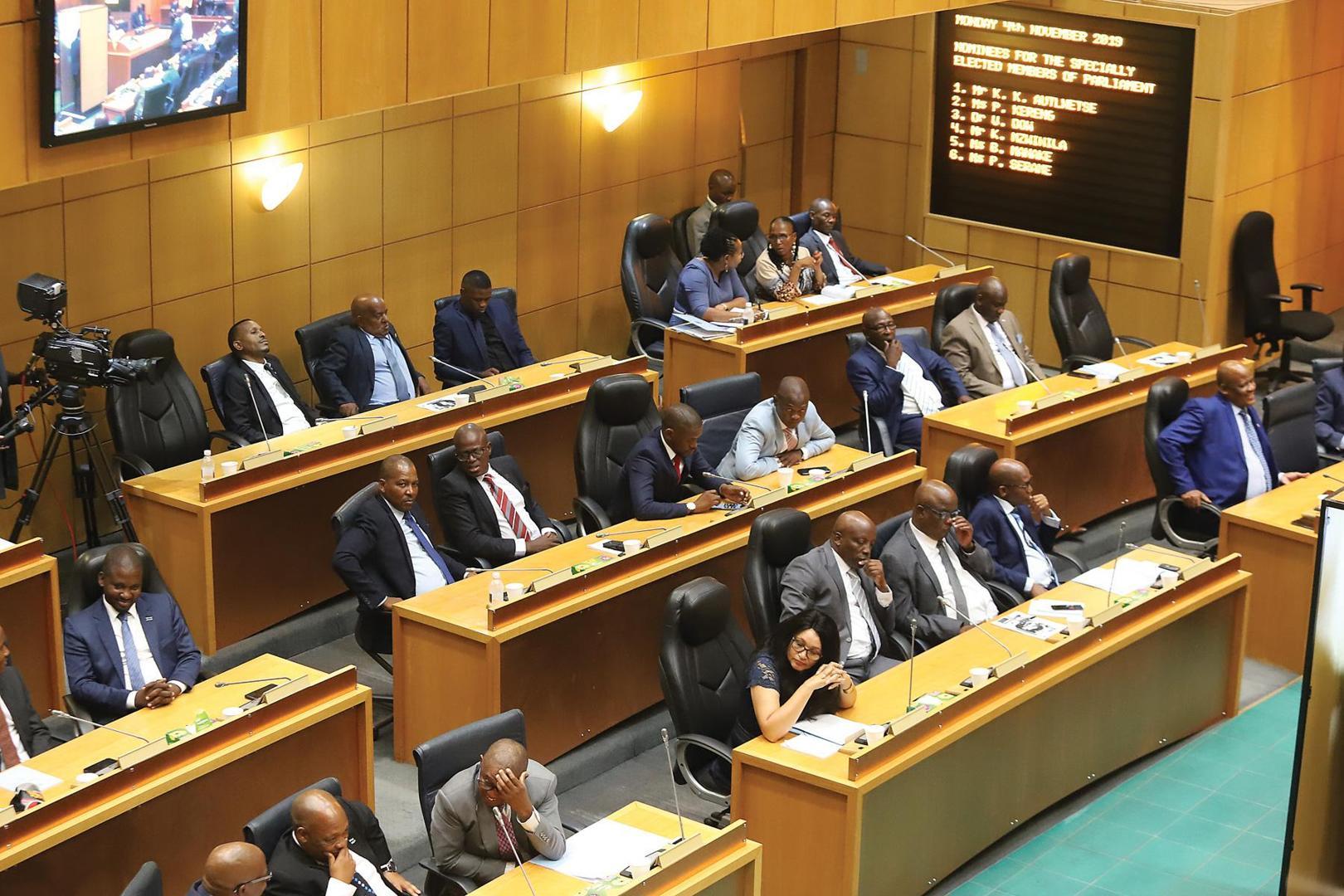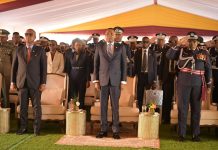Africa-Press – Botswana. The review on the country’s supreme law continues to generate a heated debate among legislators, some being content with the outcome of inquiries, some querying the review process and findings, some feeling it is being rushed, while some are suggesting ways to improve it.
Contributing to the ongoing debate on the Constitution Amendment Bill of 2024 that is currently before the National Assembly for second reading, it is apparent that the lawmakers however unanimously agree that the Constitutional review was long due.
The amendment follows approval by government, the recommendations of the Presidential Commission of Inquiry into the Review of the Constitution of Botswana.
Francistown East MP, Mr Buti Billy said the report on the review of the Constitution captured what Batswana lobbied for during the countrywide consultation meetings.
Mr Billy said government valued the principles of consultation with the wider members of the society on varied issues, hence all primary stakeholders were engaged.
“Since there are many actors in a society, the commission saw it important to engage all of them and was courteous to further call on those to even submit in writing to the commission. In my constituency, we have heard reports from BOCONGO, Botswana Council of Churches, Ditshwanelo and some individuals,’” he said.
He was reacting to sentiments by some MPs that condemned the process as undemocratic and lacked inclusivity.
Subsequently, Mr Billy commended the proposed second generation rights to work, health, shelter and education as a welcome development that showed progressiveness in the impending constitution.
He said election of Specially Elected MPs (SEMP) was meant to augment diverse skills and include marginalised members of the society.
MP for Mahalapye West, Mr David Tshere called on Parliament to consider suspending discussion of the Bill in order to set aside a Parliamentary select committee that would further consult about the contents of the Bill.
Mr Tshere opined that several civil society movements such as BONELA, BOCONGO, Motheo o Mosha and Gender Commission had petitioned him to move that the Bill be suspended for further consultations.
He expressed reservations that the Bill was rushed and the process of the Constitutional review should had been executed in terms of the process provided for by the Commissions Act on review of Constitution rather than Inquiries Act.
“We are dealing with a supreme law that is important by its nature. It is important to have gone back to the people after all submissions were made,” he said.
Mr Tshere argued that it was important that the commission should have gone back to members of the society to engage on their final findings after compiling their submissions, to have their final say.
In his view, what the report captured was contrary to what people recommended during consultations, particularly the issue on direct election of the President.
He argued that the proposed Constitution was not reflecting an ordinary Motswana and most of the proposed clauses were meant to over empower the President.
Mr Tshere also requested that the report be gazetted in Setswana and other languages.
He also opined that the law proposed, vested all powers on the President to nominate 10 SEMP, Independent Electoral Commission (IEC) secretary and Chief Justice and the President of the Court of Appeal.
He also argued that the rights to education, health and work were justified within the same context to ‘ensure that the enjoyment of such rights is subject to measures reasonably required to achieve the progressive realisation of such rights and are reasonably justifiable in a democratic society.” This, he said was not binding and was unachievable.
MP for Nkange, Dr Never Tshabang also argued that the Bill did not reflect what Batswana wished for. In particular, he said what most Batswana submitted was that there should be direct election of the President, councillors and MPs.
In that regard, he said the consultation process was just a formality to have a record that there was a countrywide consultation on the Constitutional review process.
He contended that the special election of SEMP was not fulfilling what it was meant for, under the current voting system of first-past-the-post, which he said made it impractical to achieve 30 per cent of women and marginalised groups in Parliament.
“Proportional representation is the best alternative to bring about a good percentage of marginalised groups,” he said.
Dr Tshabang also said the right to education, health, shelter and work were a progressive development, but were not achievable under the current scenario where resources to achieve such were appalling.
“These are far-fetched thoughts that we can achieve the right to health and education,” he said.
For More News And Analysis About Botswana Follow Africa-Press






